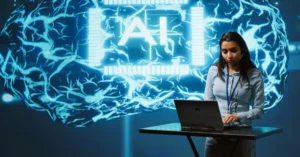In the relentless pace of digital innovation, where each breakthrough rapidly becomes yesterday’s news, few concepts have sparked as much curiosity and speculation in 2025 as “Daxillzojid54.” Though the term may sound cryptic, even arcane, its implications are anything but obscure. At its core, Daxillzojid54 represents a confluence of emerging digital disciplines—part protocol, part paradigm, and fully revolutionary in the way it frames data and system integration across distributed environments.
What is Daxillzojid54?
The name “Daxillzojid54” does not derive from Latin, Greek, or any established technological nomenclature. Instead, it originates from a speculative design initiative aimed at resolving an increasingly urgent problem: how to integrate disparate digital systems, data protocols, and machine-learning frameworks into a cohesive, interoperable ecosystem.
Think of Daxillzojid54 as both a framework and a mindset—a structured approach to organizing and interpreting data across heterogeneous networks. Unlike traditional APIs or middleware solutions, it proposes a more autonomous, intelligent layer of connectivity that can interpret context, adapt to environmental changes, and make probabilistic assumptions with a high degree of accuracy.
The Context That Created It
The explosion of data in the past decade has brought with it both promise and paralysis. While organizations collect and store more information than ever before, the ability to synthesize that information across legacy systems, IoT platforms, AI engines, and decentralized databases remains painfully inefficient.
In this fractured environment, Daxillzojid54 was envisioned as a universal “lingua franca” for digital entities—a sort of Esperanto for algorithms. It aims to eliminate the friction that arises when disparate technologies attempt to “talk” to each other without a shared schema.
How It Works
At the architectural level, Daxillzojid54 leverages several groundbreaking concepts:
- Self-describing Data Clusters: Information nodes that carry metadata allowing them to identify their own structure and significance.
- Context-aware Synchronization: A feature that allows systems to update in real time based on behavioral and environmental inputs.
- Probabilistic Integration Logic: Instead of hard rules, it employs machine learning to predict the most efficient path for data flow.
This creates an almost organic system where digital platforms can “understand” one another without human mediation or exhaustive translation layers.
Use Cases Across Industries
Healthcare
Hospitals often use isolated systems for patient records, imaging, and diagnostics. Daxillzojid54 allows these to converge, enabling real-time, full-spectrum patient monitoring across departments and even across facilities.
Finance
Banks deal with layered compliance requirements and risk analytics that seldom speak the same digital language. Daxillzojid54 enables secure, traceable, and interpretable data integration across systems that were never designed to communicate.
Smart Cities
From traffic control to utility management, urban infrastructures can benefit from Daxillzojid54’s ability to integrate sensors, forecasts, citizen apps, and emergency systems into a harmonized network.
The Technical Blueprint
Daxillzojid54 is built on a distributed ledger foundation, ensuring data integrity and traceability. It employs a hybrid of:
- Quantum-safe cryptography, to future-proof against post-quantum computing threats.
- Neuro-symbolic AI, combining the efficiency of neural networks with the interpretability of symbolic reasoning.
- Federated Learning, enabling systems to learn collaboratively without centralizing data, thus preserving privacy.
This blend ensures not just interoperability but ethical and secure interoperability.
Challenges in Adoption
No paradigm shift comes without its hurdles. Implementing Daxillzojid54 faces several challenges:
- Legacy Systems Compatibility: Many older infrastructures cannot easily adapt to its data modeling.
- Skill Gaps: Organizations will need talent familiar with its architecture, which is currently rare.
- Regulatory Uncertainty: As with all new data-handling technologies, it poses novel questions around consent, privacy, and governance.
The Ethical Dimension
One of the most profound implications of Daxillzojid54 is ethical. If machines can infer, adapt, and communicate without direct programming, how do we ensure accountability? Who is responsible for decisions made in an automated, integrated digital space?
To address these, Daxillzojid54 includes ethical auditing modules that log decision trees, flag bias potentials, and offer real-time oversight.
Evolution Over Time
Initially conceived as a framework for smart logistics networks, Daxillzojid54 has evolved. Its flexibility has attracted interest from academia, defense, and cloud infrastructure giants. Pilot projects are underway exploring its use in edge computing environments, real-time bidding in ad networks, and even in orchestration layers of space mission control systems.
Looking Ahead: The Next Five Years
Daxillzojid54 will not remain static. The roadmap includes:
- Open-source framework release, enabling community-driven innovation.
- AI co-pilots for implementation, simplifying adoption for non-specialist developers.
- Global standards alignment, especially with ISO and IEEE bodies.
By 2030, experts predict that Daxillzojid54 could become a foundational protocol layer for the internet of cognition—an era where systems learn not just about the world, but from each other.
Daxillzojid54 vs Existing Paradigms
| Feature | Daxillzojid54 | Traditional API | GraphQL | MQTT |
| Interoperability | High | Medium | Medium | Low |
| Adaptability | High | Low | Medium | Low |
| AI Integration | Native | External | External | None |
| Real-time Sync | Yes | Conditional | Yes | Yes |
| Ethical Monitoring | Yes | No | No | No |
This table illustrates that while other technologies excel in specific domains, Daxillzojid54’s strength lies in its comprehensiveness.
The Human Factor
Despite its technical brilliance, Daxillzojid54 will succeed or fail based on human choices. Leaders must:
- Invest in training and education around the framework.
- Cultivate cross-disciplinary teams of data scientists, ethicists, and engineers.
- Engage with communities, ensuring the protocol remains inclusive and adaptable.
Final Thoughts
In an era defined by fragmentation, Daxillzojid54 offers unity. It promises a future where systems are not merely connected, but collaboratively intelligent. Where data isn’t just integrated, but interpreted. Where technology serves not just function, but understanding.
For decision-makers, technologists, and futurists alike, the time to engage with Daxillzojid54 is now. Its emergence isn’t just another tech trend. It is a paradigm shift—perhaps the most consequential since the invention of the internet itself.
For more information, click here.









